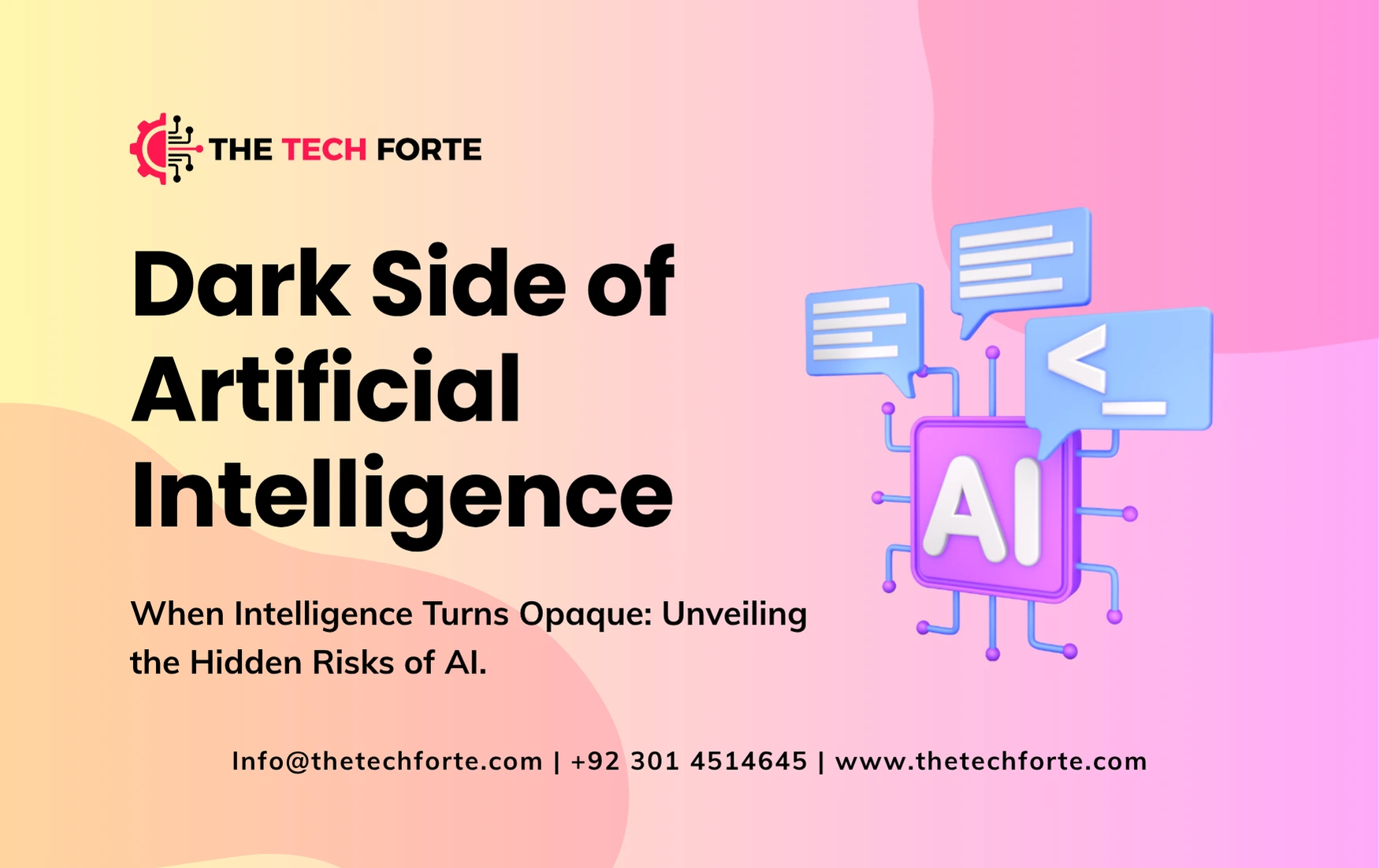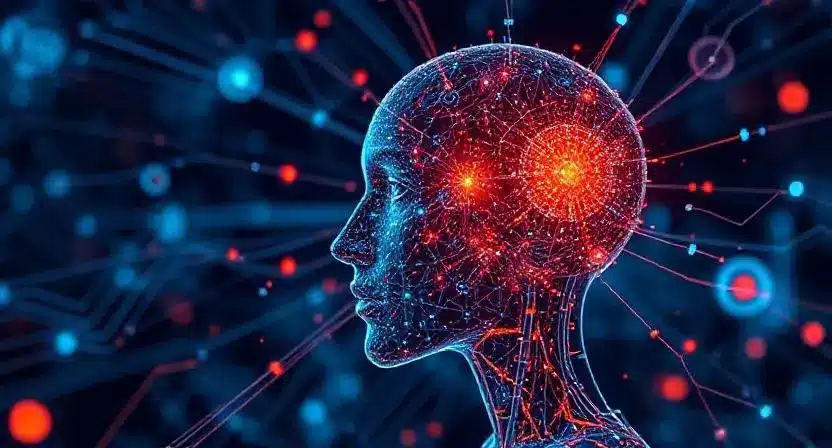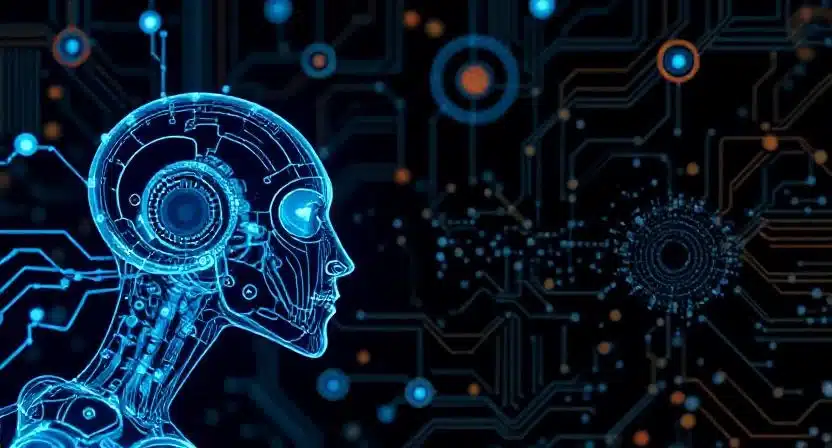
The Dark Side of Artificial Intelligence: Risks & Ethics
Artificial Intelligence (AI) has transformed the modern world from streamlining business operations to personalizing everyday experiences. Yet, behind this dazzling progress lies a growing concern: the dark side of artificial intelligence.
While AI promises efficiency, intelligence, and limitless potential, it also brings serious ethical, social, and security challenges. From bias in algorithms to threats to privacy and jobs, understanding these risks is critical for responsible innovation.
You can also read: Top 10 AI Trends to Watch in 2025: The Future of Artificial Intelligence
Understanding the Dual Nature of AI
AI is not inherently good or bad; it’s a tool shaped by the intentions and data of its creators. On one hand, AI drives medical breakthroughs, automation, and sustainable development. On the other hand, it exposes society to new forms of manipulation, discrimination, and inequality.
This tension defines the benefits and risks of AI. While the technology improves our quality of life, the way it’s deployed, often without regulation or transparency, can lead to unintended harm.
Ethical and Reputational Risks of Artificial Intelligence
Ethics is the heart of AI’s global debate. Many organizations are adopting AI to improve productivity or make data-driven decisions, but few fully grasp the ethical and reputational risks of artificial intelligence.
- Algorithmic bias: AI systems trained on unbalanced or biased data can reinforce racial, gender, or cultural stereotypes.
- Lack of transparency: “Black box” models make decisions that are hard to explain or audit.
- Privacy concerns: AI-powered surveillance and facial recognition systems raise major privacy issues.
- Reputation damage: Companies that misuse AI risk losing public trust and facing backlash.
A single unethical AI decision can lead to public outrage and long-term brand harm, proving that ethics is no longer optional, but essential.
Risks of Generative AI: The New Digital Dilemma
Generative AI, the force behind chatbots, deepfakes, and image generators, has redefined creativity and automation. But it also introduces serious risks of generative AI that threaten the very concept of truth.
- Deepfakes and misinformation: Generative models can create realistic fake videos or voices, blurring the line between real and fabricated.
- Data security: Models often rely on massive datasets scraped from the web, raising concerns over copyright and consent.
- Ethical misuse: Generative AI can produce biased, harmful, or manipulative content if not carefully monitored.
As this technology becomes more accessible, the challenge lies in balancing innovation with digital responsibility.
The Dark Side of Artificial Intelligence in Higher Education
AI has reshaped education from personalized learning to plagiarism detection. But in universities worldwide, there’s growing anxiety over the dark side of artificial intelligence in higher education.
- Academic dishonesty: Tools like ChatGPT make it easier for students to generate essays or research without genuine learning.
- Loss of creativity: Overreliance on AI limits critical thinking and problem-solving skills.
- Bias in grading systems: AI-based evaluation tools can unintentionally disadvantage students based on language or background.
Institutions must find ways to use AI ethically, supporting students without replacing human judgment or academic integrity.
The Dark Side of Artificial Intelligence in Retail Innovation
Retailers are embracing AI for demand forecasting, customer engagement, and personalized recommendations. Yet, the dark side of artificial intelligence in retail innovation is becoming evident.
- Consumer surveillance: Retail AI often tracks behavior, location, and preferences without full consent.
- Dynamic pricing ethics: Algorithms can unfairly charge different customers based on personal data.
- Job displacement: Automated checkout and smart warehouses reduce employment opportunities.
Retail innovation should serve both profit and people, ensuring transparency, fairness, and respect for consumer rights.
The Dark Side of Artificial Intelligence in Services
The service industry, from customer care to finance, has rapidly adopted automation and AI-driven chatbots. But the dark side of artificial intelligence in services reveals how easily efficiency can overshadow empathy.
- Loss of human touch: Replacing humans with bots can frustrate customers and damage trust.
- Biased decision-making: AI credit scoring or insurance algorithms can exclude certain demographics.
- Security breaches: Automated systems may mishandle sensitive data if not properly secured.
Responsible deployment requires human oversight, ensuring that service automation enhances, rather than erodes, customer relationships.
Risks of AI in Healthcare: When Technology Meets Humanity
AI is saving lives by detecting diseases, predicting outcomes, and enhancing diagnostics. However, the risks of AI in healthcare show that even life-saving tools can have dangerous flaws.
- Data privacy breaches: Sensitive medical data is vulnerable to cyberattacks.
- Diagnostic errors: AI systems trained on incomplete or biased data can misdiagnose conditions.
- Ethical responsibility: Who is accountable when an AI recommendation harms a patient, the doctor, the developer, or the system itself?
Healthcare AI must operate under strict ethical standards and continuous human review to protect patient welfare.
Security Risks of AI: Protecting a Digital World
As AI becomes central to cybersecurity, it also creates new vulnerabilities. The security risks of AI are twofold: it can be both a weapon and a target.
- Adversarial attacks: Hackers can manipulate AI models to produce false results.
- AI-powered cybercrime: Automated phishing or deepfake scams are harder to detect.
- Autonomous systems risk: Unsupervised AI in defense or finance could cause massive unintended damage.
Governments and companies must strengthen AI governance, emphasizing transparency, data protection, and human-in-the-loop security models.
Balancing the Benefits and Risks of AI
Despite the challenges, it’s important to acknowledge the benefits and risks of AI together. When governed responsibly, AI can combat climate change, improve healthcare, and boost global productivity.
The future depends on how we manage AI through regulation, ethical frameworks, and cross-sector collaboration. A balanced approach ensures that AI serves humanity rather than controls it.
Building a Responsible AI Future
To prevent misuse, organizations and governments must prioritize responsible AI practices. This includes:
- Implementing AI ethics committees in both public and private sectors.
- Requiring algorithmic transparency and fairness audits.
- Educating the public about digital literacy and AI awareness.
- Establishing global AI governance standards for accountability.
A sustainable AI future will emerge not from blind optimism or fear but from informed, ethical leadership.
FAQs: Understanding the Dark Side of Artificial Intelligence
AI poses risks such as bias, misinformation, data breaches, job loss, and ethical misuse in automation.
AI tools enhance learning but also enable plagiarism, reduce creativity, and challenge academic honesty.
Companies risk public backlash if AI decisions lead to discrimination, privacy violations, or unethical practices.
Through content moderation, transparency in data usage, and ethical AI model training.
Adversarial attacks, deepfake frauds, and the misuse of AI in cybersecurity or defense systems.
Conclusion: The Human Factor in the Age of AI
The evolution of AI reflects both human brilliance and human flaws. The dark side of artificial intelligence is not a technological inevitability; it’s a reflection of how we choose to design, deploy, and regulate it.
To ensure AI remains a force for good, we must embed ethics into innovation, transparency into governance, and humanity into every algorithm we build.
The future of AI depends on us not just as developers and policymakers, but as conscious citizens of a digital world.






